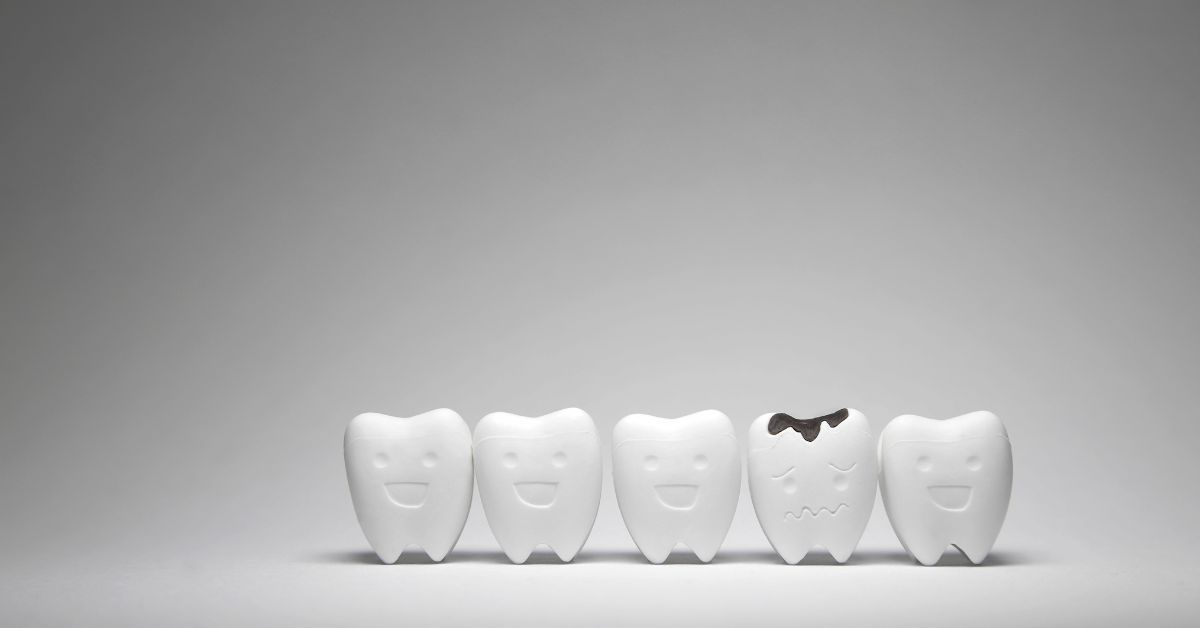The Early Signs of Tooth Decay
Identifying The Early Signs of Tooth Decay
Having a healthy mouth and teeth is one of life's little luxuries, something that can easily be neglected if we are not conscious of our oral health care. Many people don't know just how important it is to have healthy teeth, but let's face it: no one wants to sit in the dentist's chair getting a filling. Ignoring your teeth can often lead to further damage, such as root canals, extraction, or even infections. It's never too late to start caring for your teeth; brushing twice daily, flossing regularly, and having regular check-ups with your dentist will go a long way in ensuring you keep your pearly whites healthy and happy!
Taking care of your oral hygiene should be at the top of everyone's to-do list - brushing and flossing your teeth is an absolute must. But it's also important to be aware of the most common signs of tooth decay, so you can get ahead of any issues before they become a bigger problem. These signs include everything from pain and swelling around your gums to pressure on your teeth and even holes in your teeth or extreme sensitivity. If you haven't already taken preventative care, don't worry! Contact Bellwood Family Dental and we can help! Read on to learn more!

Toothaches
If you're experiencing a dull ache or throbbing in your teeth that don’t seem to stop, then you may want to consider it an early sign of tooth decay. This kind of pain should never be taken lightly; the sooner you take action, the better off your teeth will be in the long run. That said, if you experience some paining after eating something hard or chewy and it goes away shortly afterward, that shouldn't be too much of a concern. However, if the pain lingers and never seems to go away, it might be time to consult with your dentist about treating any potential decay.
Issues with Your Gums
Unfortunately, swollen gums that bleed can be a tell-tale sign of tooth decay. This can quickly lead to other more significant problems with your oral health if left untreated. Worse still is when pus starts to present itself in the form of a discharge from your gums. This indicates some troubling signs of infection, which should be addressed immediately. It's important to note that maintaining healthy gums is an essential part of a good dental health regimen and should not be overlooked.
Pressure on Your Teeth
If you're experiencing a strange sensation of pressure on your teeth when chewing through your food, it can be a huge sign that something is amiss with your teeth. It may cause you to feel concerned or uneasy, given the circumstances. But don't stress - tooth decay is fortunately treatable, and many proactive measures can be taken to protect yourself from it in the future. If you're finding that regular flossing and brushing are not enough, consulting an experienced dentist would be the appropriate next step toward restoring your smile and dental health.
Pits or Discoloring on Your Teeth
When it comes to your oral health, discoloration on your teeth can be a major warning sign of tooth decay. While brushing and flossing can go a long way towards preventing its onset, if you start seeing any black or brown spots on your teeth that don't go away with regular cleanings, it's time to think twice about the health of your teeth. Additionally, holes or pits on any of your teeth are an alarming sign that your tooth decay might have progressed too far. If this is the case, make sure to make an appointment with a dentist right away to prevent any potential long-term damage.
Extremely Sensitive Teeth
If you've found yourself wincing at the taste of an ice-cold frozen treat or unexpectedly cringing from a warm beverage, then you may be facing an issue with tooth decay. Although a little sensitivity is normal, if it happens too often or gives you pain each time, then it's time to look into getting your teeth checked. Left untreated, these kinds of issues can turn out to be much more than just an uncomfortable sensation and degenerate into much bigger problems that can affect your dental health. So take action and get yourself seen by a professional before it gets any worse!

How Can Tooth Decay be Treated?
Taking care of your teeth is important for maintaining the overall health of your mouth. If you develop a cavity, the kind of treatment you need will depend on the size and location of the cavity. If it is caught early on, preventative measures like sealants or fluoride rinses can help stop further damage. Should the decay have advanced further, removing decayed parts of teeth and filling in cavities is necessary. For larger cavities, a crown might be used to cap off that part of the tooth, restoring its form and color to make it look like nothing ever happened. In cases where even a crown won't be enough to save the tooth, a root canal may be necessary — and very rarely, a tooth must be extracted altogether. Thankfully, with proper hygiene habits and regular trips to the dentist for check-ups, issues involving cavities can usually be avoided or taken care of early before more extreme measures are required!
Now You Know How to Recognize the Signs of Tooth Decay
Nobody expects to experience tooth decay, yet even if you brush and floss your teeth regularly, you could still be affected. While toothache, swollen and bleeding gums, pressure on the teeth, pits or holes in them, and extra-sensitive teeth are all signifiers of dental decay, it doesn't necessarily have to spell disaster for your oral health. If you notice early signs of decay, our team can apply a sealant as a preventative measure or another simple solution. Late detection may require restorative solutions like fillings, crowns, or root canals but don't fret! Our one-day implant process is designed to restore lost teeth quickly and efficiently, allowing you to reacquaint yourself with a healthy and beautiful smile that shines with confidence almost immediately.
Conclusion
Tooth decay is a preventable condition. By understanding the early signs and visiting a dentist regularly, you can take steps to ensure that your teeth stay healthy for as long as possible. Taking good care of your teeth should always be a priority - after all, it is not just about maintaining a beautiful smile but also about keeping your entire body healthy! So remember: brush and floss at least twice daily, don't forget to visit your dentist regularly, and watch out for any signs of tooth decay or disease before they become serious issues. Taking these steps will help keep your mouth free from plaque, bacteria, and other oral health problems that could lead to tooth loss down the road.
Insights






